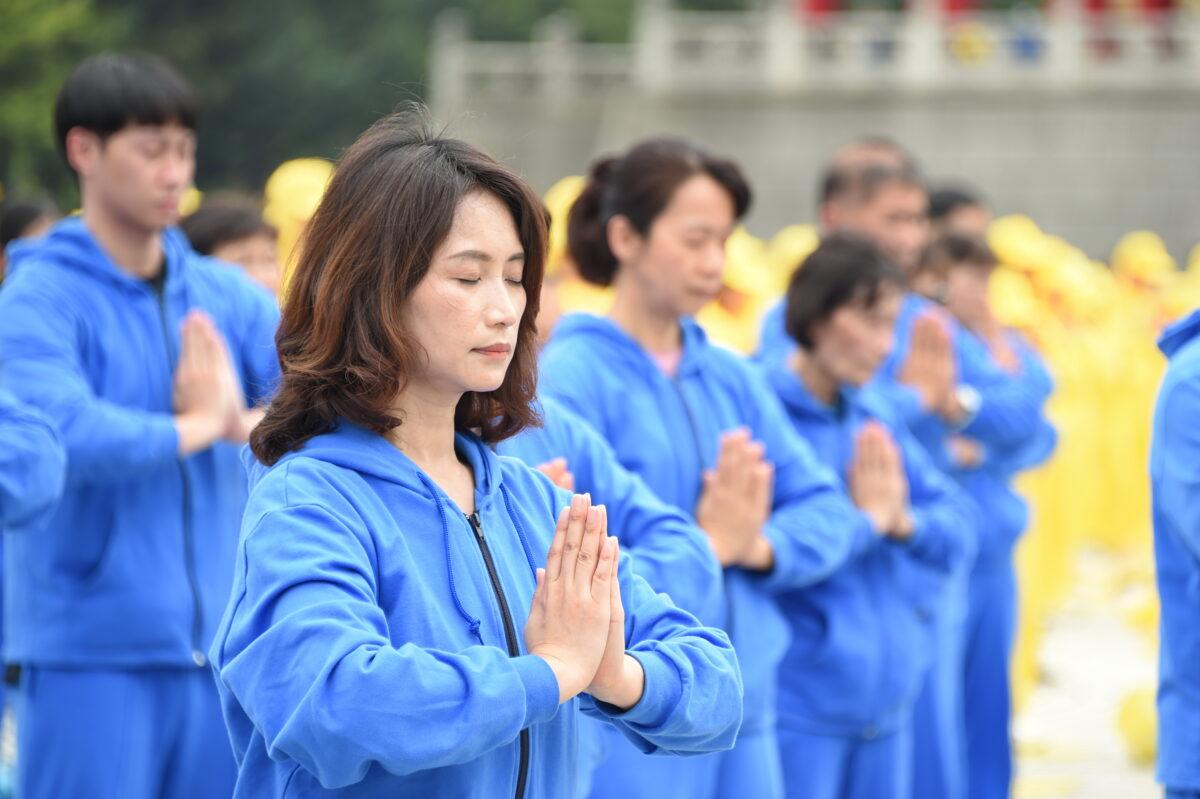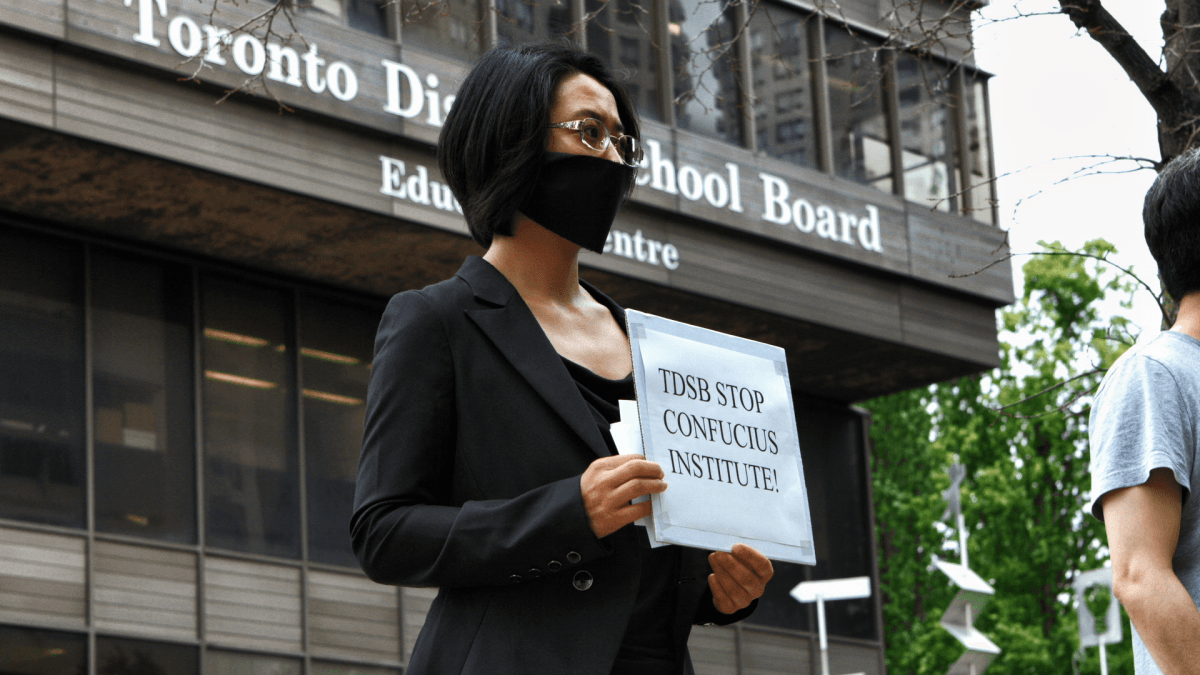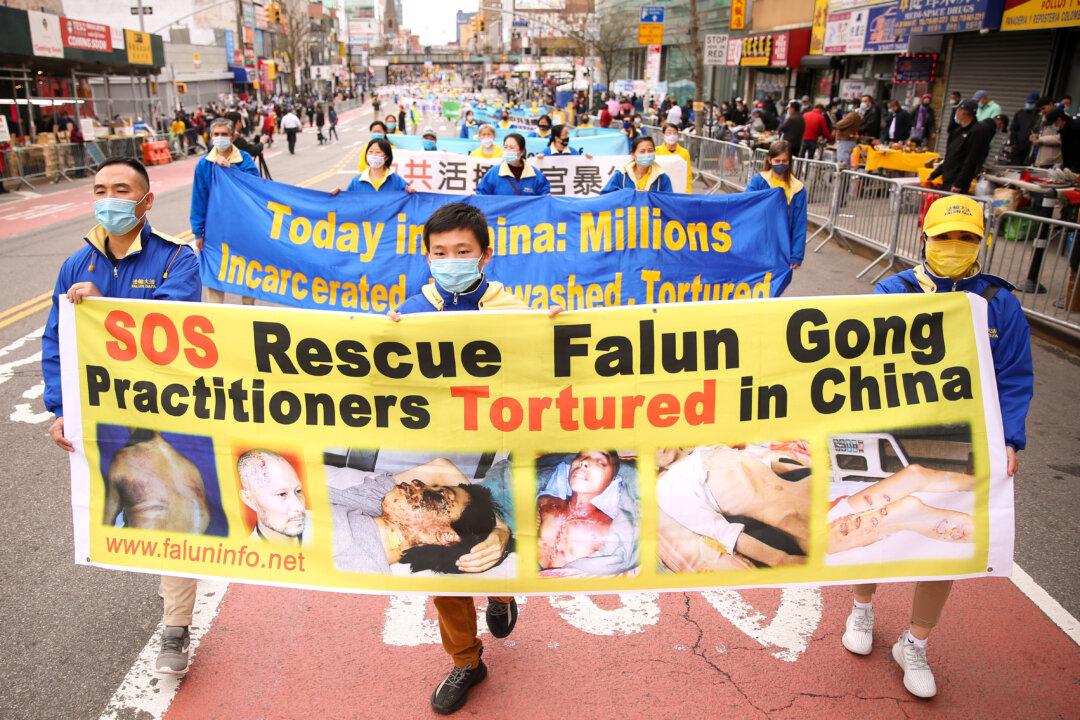The international arm of the Chinese regime’s state broadcaster ordered some of its contracted workers in the United States to distance themselves from the persecuted faith group Falun Gong, an internal document supplied to The Epoch Times shows.
The Washington bureau of CGTN, a state-run English language television network, earlier this year instructed several contract workers to pledge to maintain their “political purity,” according to a worker conduct agreement. That includes being members of groups deemed unacceptable to the Chinese Communist Party, including Falun Gong, according to the document.

‘An Indenture’
The document, titled “promise statement” and written in Chinese, was provided by former U.S. contractors who left CGTN in late October upon finding the level of pressure and control at the company unbearable.It appears to be a replica of a memo issued by the Beijing headquarters of CCTV, CGTN’s parent company, one worker said.
The Beijing-centric tone is unambiguous in certain parts of the document: One pandemic control requirement directs workers to adhere to COVID-19 rules from Beijing’s city government and local districts.
Other provisions in the agreement include restrictions on gambling, social media use, bribery, “creating ‘rumors,’” drunk driving, running red lights, and the disclosure of company business secrets.
“It feels like we have signed an indenture,” James (a pseudonym), an IT technician who signed the document, told The Epoch Times. James, like other current and former CGTN contract workers referenced in this piece, spoke to The Epoch Times on the condition of anonymity over fear of company reprisal.
These IT technicians were contracted to work at CGTN by Sobey Digital Technology Co., Ltd., an IT solutions provider for the media industry based in Chengdu city, China. Sobey declined to comment, and CGTN didn’t respond to repeated emailed and phoned requests for comment from The Epoch Times.

The document also placed a special emphasis on Party ideology, telling workers to “unify their thinking” and “managers of all levels” to “diligently ensure the ideological education of personnel under their oversight.”
The aspect of ideological supervision should raise eyebrows, said Sarah Cook, senior China analyst at the Washington-based nonprofit Freedom House.
“To me, it seems along the lines of dynamics we see often in the CCP system, or ‘outsourcing’ ideological enforcement to ordinary citizens to have to report on each other and supervise each other,” she told The Epoch Times, referring to the Chinese Communist Party. “Managers aren’t responsible only for policing their own thoughts but also those of their subordinates.”
James and coworkers on his IT team signed the agreement in CGTN’s Washington office in August—more than a year after he began working there, and about seven months after his teammate Alvin came onboard.
It’s unclear whether the same document was imposed on staff employees or other departments outside of IT. Nor was there any explanation from the company as to why the contractors were asked to sign the document at that particular time.
While none of the people interviewed by The Epoch Times practice Falun Gong, the very idea that the company should decide what employees do in their private capacity nonetheless felt repulsive, they said.
“No one wanted” to sign it, but they did so to keep their jobs, Alvin said.
“The team leader brought it over for us to sign and told us the station required it,” said Alvin. “We signed after a brief look.”
‘Explicitly Discriminatory’
For some China watchers, such requirements imposed by the state-run media outlet didn’t come as a surprise.Leaked internal documents previously obtained by The Epoch Times show that some local governments would train their personnel about Falun Gong before they traveled abroad to make sure they avoided Falun Gong-related events. Before a five-day work trip to Singapore in 2017, a city government department in south China’s Haikou issued a confirmation to the city’s foreign affairs office certifying that a staff member on the visit wasn’t a Falun Gong adherent.
Confucius Institutes, a Beijing-funded language and culture program installed at universities across the world, sparked controversy more than a decade ago over similar hiring and employment practices focused on Falun Gong.
Sonia Zhao used to teach Chinese at the Confucius Institute at Canada’s McMaster University. Prior to arriving in Canada in 2010, Zhao had to sign a contract issued by Hanban, the state agency overseeing the Institutes, pledging that she wouldn’t practice Falun Gong.
Zhao was a Falun Gong practitioner, and her mother was imprisoned in China more than once for her faith. For one year while working at the institute, Zhao hid her belief, for fear that “if they found that out, something would happen to me,” she told The Epoch Times at the time.

Recalling the Confucius Institute incident in Canada, Cook, the China analyst, said she was “not surprised that there is a provision along these lines.”
“But it’s still striking in terms of how explicitly discriminatory” the CGTN agreement is—”not only regarding someone’s practice of Falun Gong but their religious and political beliefs and activities more widely,” she said.
Differential Treatment
At least eight IT contractors have resigned from CGTN’s Washington office in recent months, saying they'd had enough of the alleged mistreatment and exploitative work environment.James said that the company treated Chinese speakers deferentially. When “so-called superiors” appeared, they needed to get up from their seats to show respect, even as employees who speak other languages were exempt from this rule, he said.
For James, who grew up in Malaysia, Mandarin isn’t his mother tongue. His manager from mainland China had once mocked his Mandarin skills, he said.
“He said my Chinese wasn’t good, that I was so stupid and didn’t know so and so,” he told The Epoch Times. “He nitpicked over our work and threatened to withhold our pay.”
The mental stress was so great that Michael and some coworkers considered seeking psychological therapy.
Evan, another former IT worker for CGTN, believes that, for the company, it was all about control.
“Because we can speak Chinese ... they are constantly reminding us that they are the boss and they have the most say. They can dictate our every move,” he told The Epoch Times.





